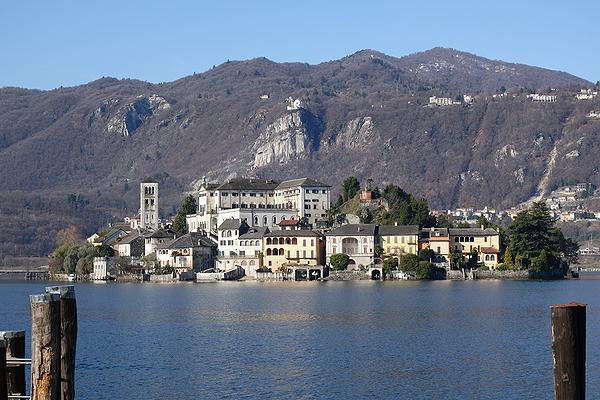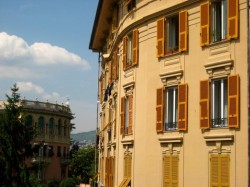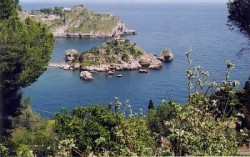ITALY CHRONICLES
Latest Posts

New! Italy Photo Contests – Show Off Your Photos of Italy
If you, like me, you think Italy is extremely photogenic, you might be interested to hear that Italy Chronicles is to run photo contests. The
Italian Politics – Still a Mess
Here’s a roundup stroke overview of what’s going on in the decidedly odd world of Italian politics. Broadly, there are three political factions in Italy,
Wild Boar Hunting in Italy
Ever thought about wild boar hunting in Italy? Maybe not but perhaps you might like to. Italy has a bit of a problem with wild
Berlusconi Heart
On Thursday in Italy headlines were dominated by the news that Silvio Berlusconi, a former and controversial prime minister, required an urgent heart operation and had
Money People – The World’s Biggest Problem
What’s that old saying? Ah yes, “money is the root of all evil”. From what is happening in Italy and elsewhere around the world, there
Italian Politics – Still a Mess
Here’s a roundup stroke overview of what’s going on in
Wild Boar Hunting in Italy
Ever thought about wild boar hunting in Italy? Maybe not
Berlusconi Heart
On Thursday in Italy headlines were dominated by the news
Money People – The World’s Biggest Problem
What’s that old saying? Ah yes, “money is the root
Italy
Unveiling the Ancient Cave Dwellings of Matera
Unveiling the Ancient Cave Dwellings of Matera , also known as troglodyte settlements, are unique architectural structures carved directly into natural caves or rock formations.
A Brothel Fit for a Prime Minister?
Aside from Italy’s prime minister Silvio Berlusconi who is facing charges of having paid for sex with underage prostitute Ruby, which he denies, three close
Whoops, I did it Again in Italy, the Land of Self-Induced Blackouts
Oops, I did it again! Last night I innocently switched on the kettle to make myself a cup of coffee in our apartment in Milan,
Vespa Museum in Pontedera, Italy
Love or loathe them, you still have to admit that the Vespa scooter is about as Italian as pasta.

The Crippling Cost of Politics to Italy
Italian business association Confcommercio recently carried out some research into just how much Italy’s politicians cost Italians. The answer is that Italy’s politicians cost around
Once Upon a Time Italian TV was Good
Whilst chatting with one of my students, I discovered that he’d done his degree thesis on the subject of Italian television. I had to know more about this aspect of Italy I love to hate.

The Ferrari of the Skies – Piaggio P 180 II Avanti Aircraft
Why am I writing about an aircraft, of all things?
A Guide to Ordering Italian Coffee: Experience Italian Culture, Language, and the Best Coffee Brands in Italy
Italian coffee culture is renowned worldwide for its unique traditions
Properties

How to Find Property for Rent in Italy
Maybe you are coming to Italy to work or study here for a while, in which case, you’ll need somewhere to live. If that’s the
House For Sale near Milan
Gaetano Salvo, friend and Blog from Italy researcher wants to sell his house. For those who might be interested, or may know of someone or

The Admirable Admiral’s Villa in Taormina
If you know your history pretty well, you may be aware that one of England’s most celebrated Admirals possessed a rather charming villa in the scenic Sicilian town of Taormina.
House For Sale near Milan
Gaetano Salvo, friend and Blog from Italy researcher wants to sell his house. For those who might be interested, or may know of someone or

How to Find Property for Rent in Italy
Maybe you are coming to Italy to work or study here for a while, in which case, you’ll need somewhere to live. If that’s the
Places to stay in Italy
Casa Villatalla B&B, Liguria
By far the most important members of the Casa Villatalla household are Nellie (an elderly but loveable chocolate Labrador), Bonnie, a fluffy and rather scatty American Spaniel, and Pickle, aneccentric cat who walks like John Wayne.
Chaplin Bed and Breakfast Rome
Perfectly located in a safe and quiet but extremely central Rome neighborhood, the Chaplin Bed and Breakfast Rome is the ideal base for your Roman holiday.
Villa Miller Bed and Breakfast, Puglia, Italy
Located well off the main road in the depths of the Puglia countryside, Villa Miller the only sounds which disturb guests are those of the crickets and the ringing of the bells worn by the areas cow and sheep population.
Casa Villatalla B&B, Liguria
By far the most important members of the Casa Villatalla household are Nellie (an elderly but loveable chocolate Labrador), Bonnie, a fluffy and rather scatty American Spaniel, and Pickle, aneccentric cat who walks like John Wayne.
Villa Miller Bed and Breakfast, Puglia, Italy
Located well off the main road in the depths of the Puglia countryside, Villa Miller the only sounds which disturb guests are those of the crickets and the ringing of the bells worn by the areas cow and sheep population.

